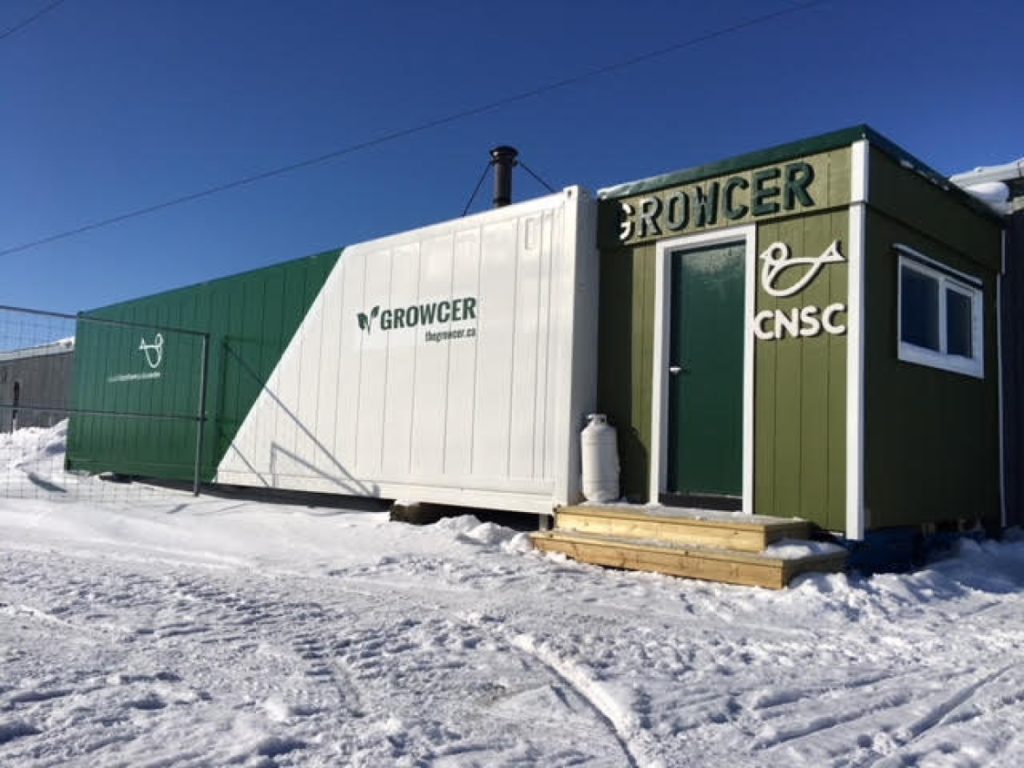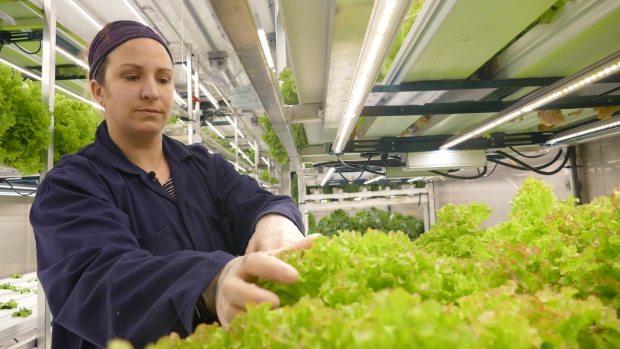
The Growcer shipping container repurposed as a hydroponic garden in Churchill. Carley Basler photo.
Churchill’s Boreal Gardens was a pioneer in attempting to grow local vegetables in the hard to access village on the Hudson Bay. While this was a novel attempt, the operation never quite made it to a scale that could make a dent in the economic distribution costs of providing vegetables to Churchillians in need of help.
Carley Basler is changing this dynamic with deliveries of fresh veggies to homes in town. Basler’s venture, Rocket Greens, is managed through the Churchill Northern Studies and is the first full-scale vegetable distribution system in Churchill and people are excited about the future of this new process. Rocket Greens derives its name from being located next to the Churchill Northern Studies Center on the grounds of the former rocket testing range to the east.
“It’s fresh food, fresher than probably anything that Churchill has ever experienced,” Basler said.

Carley Basler, system manager of the Growcer system at the Churchill Northern Studies Centre, works the hydroponic garden.= at the CSNC. Warren Kay/CBC photo.
Fresh produce in Churchill has always been in short supply and at high prices due to the secluded nature of the town. Now after nearly a year of no freight train service from the south resulting from track damage from washouts, people are suffering nutritionally and economically.
This new approach is the brainchild of Growcer, an independent hydroponic systems company from the south. They currently produce these storage container sized units set up for the immediate growth and harvesting of vegetables via the streamlined hydroponic method they have developed.
With winter winding down, and the windchill of –50 C outside subsiding, Basler tends her hydroponic garden in a computer-controlled climate. Large plants of kale, spinach, arugula, and lettuce bloom from the tubular channels of water.
“What we are doing is growing about 400 to 450 units of produce that we can harvest weekly and make available in our community,” said Basler, currently the system manager for the operation under the CNSC.
In addition to her weekly vegetable subscriber program, Basler is supplying two grocery stores with product that is lowering prices to nearly half the cost of shipped in produce. This has been a breath of fresh air for the townspeople who have been relying on government food subsidies just to get by.
Hydroponic commercial viability in the north has been attempted before with little or no success. Growcer is designed to become profitable by allowing growers to start off small and gradually add units as they “grow”. Pun intended. Containers cost $210,000 per unit and are ready to go upon delivery requiring only electrical and water connections.
Each unit potentially will turn a profit of between $30,000 and $40,000 a year in most situations. These units have the ability to relieve reliance on good being shipped from the south at exorbitant costs via rail or air.
This self-contained local operation has the ability to relieve the reliance on these methods. Developing a system that can grow rooted vegetables like potatoes is on the table to be developed by Growcer.
“It’s available weekly regardless of rail service or air service or weather,” Basler said.
“It’s a lush green garden in the dead of winter, so that’s pretty unique.”

